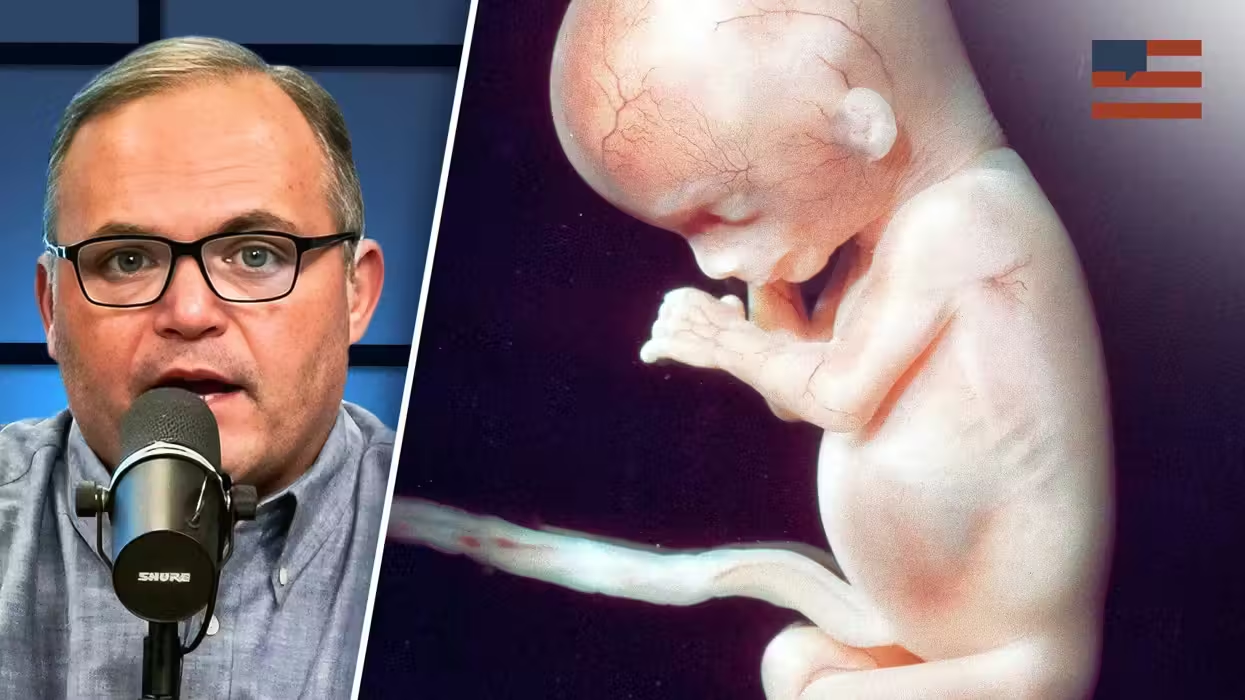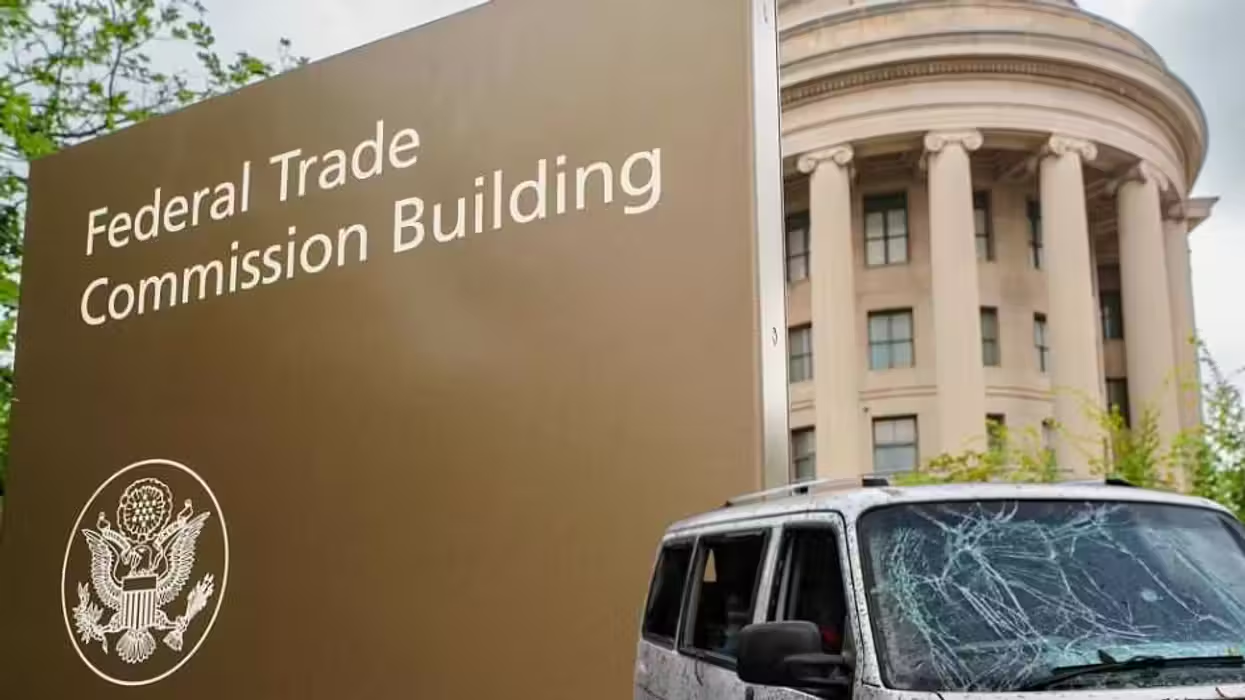
© 2026 Blaze Media LLC. All rights reserved.
Obama's Phony Debt-Ceiling Claim: GOP 'Risking Default for the First Time Since the 1700s' (Except Ceiling's Been Used Like This Since 1970s)
October 12, 2013
"This is not normal. That’s why we have to put a stop to it."
In the middle of what's supposed to be a negotiation, President Barack Obama again accused House Republicans of making an unprecedented move by putting conditions on a debt ceiling vote.
“This is not normal,” Obama said Saturday during his weekly address. “Our government is closed for the first time in 17 years. A political party is risking default for the first time since the 1700s. This is not normal. That’s why we have to put a stop to it. Not only because it’s dangerous, but because it saps everyone’s faith in our extraordinary system of self-government and that hurts us all.”
But there's one problem with Obama's assertion: Congress has been doing this since the 1970s, according to the non-partisan Congressional Research Service. (Obama's reference to risking default refers to raising the $16.7 trillion debt ceiling, which must happen by Oct. 17.)
That's right: 27 times since 1978, Congress has used raising the debt limit as leverage, the Congressional Research Service notes. This happened during budget negotiations for the 1985 Gramm-Rudman-Hollings bill, a 1989 measure on employer-benefits, and a 1979 measure repealing an oil-import fee. Not to mention the fight over the debt limit in 2011, during Obama's first term, that resulted in the Budget Control Act.
Moreover, a study published in Public Administration Review in 1993 notes that using the debt ceiling as leverage became routine decades ago.
“Additionally during this period, the genesis of a pattern developed that would eventually become full blown in the mid-1970s and 1980s: the use of the debt ceiling vote as a vehicle for other legislative matters,” the study states.
Even The Washington Post gives Obama “four Pinocchios” for saying on Sept. 18, “You have never seen in the history of the United States the debt ceiling or the threat of not raising the debt being used to extort a president or a governing party and trying to force issues that have nothing to do with the budget and nothing to do with the debt.”
Nevertheless Obama has continued since that point to claim Republicans are requiring a ransom or committing extortion when making any demands for spending cuts or changes to Obamacare to raise the nation's borrowing limit.
And believe it or not, White House spokesman Jay Carney, when responding to a question, acknowledged that President Ronald Reagan dealt with Congress threatening the debt ceiling.
Here's a list of notable occasions when Congress attached strings to raising the nation’s borrowing limit:
- 1971: For the first time changes to Social Security were part of the debt-limit increase, according to a summary by the Senate Republican Policy Committee.
- 1973: Democratic Sens. Ted Kennedy and Walter Mondale tried to attach a campaign-finance reform amendment in the midst of the Watergate scandal to the debt limit bill, The Washington Post reported. The amendment was filibustered and eventually stopped but caused delay in passing an increase in the debt limit.
- 1979: Congress passed a debt-limit increase on the condition that in 1981 and 1982 the president and Congress would submit balanced budget proposals, according to the Congressional Research Service.
- 1980: Congress repealed the oil-import fee in a bill that raised the debt ceiling, which President Jimmy Carter vetoed. A Democrat-controlled Congress then voted to override the president’s veto and enacted a debt-ceiling increase with the oil-import repeal intact, according to the CRS. The House voted 335-34 and the Senate voted 68-10. This is somewhat similar to the debate going on today, as the oil-import fee was a major part of Carter’s energy policy, just as the Affordable Care Act is Obama's signature legislative achievement.
- 1981: Sen. William Proxmire, D-Wisc., delivered a filibuster of 16 hours and 12 minutes on Sept. 28 to block a vote on the debt ceiling.
- 1982: Senate Majority Leader Howard Baker, R-Tenn., allowed senators to propose any amendment they wished to the debt-limit bill, resulting in more than 1,400 total amendments filed.
- 1983: A bipartisan group of senators led by Sens. Russell Long, D-La., and William Armstrong, R-Colo., argued that raising the debt limit leads to more borrowing. They succeeded in stopping President Reagan’s original request, as Long said, “Whenever you vote for this motion you are voting to continue the biggest deficits in the history of the country as far as the eye can see.”
- 1985: This was among the more controversial proposals tied to increasing the debt ceiling that dragged on for three months. The Balanced Budget and Deficit Reduction Act of 1985, also known as Gramm-Rudman-Hollings that required triggered budget cuts, was tied to the increased borrowing limit. In this case, Senate leaders refused to consider a temporary extension of the debt limit for a month after it expired. This prompted borrowing from other areas of the government, including Social Security, according to the study published in Public Administration Review. It was only when Social Security checks were in jeopardy that a temporary increase was allowed.
- 1987: The Supreme Court found automatically triggered spending in the 1985 bill unconstitutional. But two years later another showdown ensued over a constitutional fix to an updated Balanced Budget and Deficit Reduction Act.
- 1989: Political infighting ensued within the Democratic House and Senate over Medicare’s catastrophic health coverage provision. The bill dropped Medicare, but instead repealed tax rules on discrimination in employer-benefit plans.
- 1996: The Contract with America Advancement Act included an increase in the debt limit. The bill also created the Congressional Review Act.
- 2011: Congress passed the Budget Control Act that increased the debt limit and established a Super Committee to look for deficit reduction.
--
[related]
Want to leave a tip?
We answer to you. Help keep our content free of advertisers and big tech censorship by leaving a tip today.
Want to join the conversation?
Already a subscriber?
more stories
Sign up for the Blaze newsletter
By signing up, you agree to our Privacy Policy and Terms of Use, and agree to receive content that may sometimes include advertisements. You may opt out at any time.
Related Content
© 2026 Blaze Media LLC. All rights reserved.
Get the stories that matter most delivered directly to your inbox.
By signing up, you agree to our Privacy Policy and Terms of Use, and agree to receive content that may sometimes include advertisements. You may opt out at any time.






